『「南京事件」―日本人48人の証言』
(小学館文庫)
阿羅健一著
その9―第三章 画家・写真家の見た南京
海軍従軍絵画通信員・住谷磐根氏の証言
外務省情報部特派カメラマン・渡辺義雄氏の証言
陸軍報道班員・小柳次一氏の証言
セントジョセフ国際大学
国際社会工学部 主任教授
古賀剛大 様
今回は第3章「画家・写真家の見た南京」です。
住谷磐根画伯は22歳で二科展に入選した著名な画家です。海軍が従軍画家を求めているということで志願したのですが、なかなか認めてもらえず、米内海軍大臣に手紙を書いたり、軍務局の課長に直談判したりしてようやく採用してもらったということです。
住谷画伯が見た中国兵の処刑は下関埠頭で行われていたもので、これはおそらく、第7連隊が安全区の掃討戦で捕獲した不法戦闘員(軍服を脱ぎ捨て、武器を隠し持っていた等)6500を厳重処分したものでしょう。城内では中国人は全然見かけなかったが、『避難民区域』という表示のある所に行ったら、市民がたくさんいたと言います。虐殺というのは一度も見ていないと言います。
支那事変が始まると中国は反日をあおり、中国に同情を引くような写真を世界に流し、これが成功していました。そこで外務省情報部では、支那事変の実態を外国に知ってもらう必要に迫られ、写真とニュース・フィルムの撮影隊を組織しました。このカメラマンとして選ばれたのが、新進カメラマンとして名を成していた渡辺義雄氏でした。
渡辺氏は例の「ライフ」に載った、上海の停車場で泣いている中国の赤ん坊の写真が、中国に同情する世論形成に大きな役割を果たしたことを指摘します。しかも、全くのやらせ写真だったわけです。渡辺氏も南京で虐殺行為など見ていないといっています。難民区で日本軍が住民にコメを配給したり、慰問袋を手渡したりしていたので、その写真を撮ったと言います。
小柳次一氏は海外への日本紹介誌『NIPPON』を発行していた名取洋之助の日本工房で働いていました。名取氏とともに陸軍に宣伝戦の重要性を説得し、上海派遣軍の宣伝担当の金子俊治少佐の理解を得ました。中国で撮った写真を名取の名前で世界の写真雑誌、新聞社、出版社に売り込みました。小柳氏自身の名前でも売り込むようになり、南京でスパイを処刑した写真は「ライフ」に載ったと言います。
小柳氏も例の「ライフ」の赤ん坊の写真のことを述べています。戦後その歪曲写真を撮ったカメラマンに朝鮮戦争の時にソウルで会ったので、そのことを言ってやったそうです。小柳氏も南京虐殺など否定しています。「イデオロギーで事実をゆがめ、それがまかり通っている世の中になっています」と嘆いています。
日本語原文:http://hassin.org/01/wp-content/uploads/48-9.pdf
英訳文: http://www.sdh-fact.com/CL/Ara-Nanjing-9-.pdf
海外には、下記の通り英文で発信しました。
平成30年4月2日「史実を世界に発信する会」会長代行 茂木弘道拝
The Nanjing Incident: Japanese Eyewitness Accounts
-Testimony from 48 Japanese Who Were There-
By Ara Ken’ichi
No. 9: Chapter 3 Nanjing, as Observed by Artists and Photographers
Mr. Sumiya Iwane, Artist and Naval Correspondent
Mr. Watanabe Yoshio, Photographer, Information Bureau of
the Ministry of Foreign Affairs.
Mr. Koyanagi Jiichi, Member of the Army Press Team
We present No. 9 in this series, which contains Chapter 3: Nanjing, as Observed by Artists and Photographers.
Mr. Sumiya Iwane, a well-known artist, applied for the position of combat artist in the Navy. His application was rejected, so he sent a letter to the Minister of the Navy Yonai Mitsumasa and directly approached the head of the Fourth Department of Military Affairs--he was finally accepted.
Mr. Sumiya saw executions of Chinese soldiers at Xiaguan Wharf. He may have observed the execution of unlawful Chinese soldiers who had infiltrated the Safety Zone, discarding their military uniform and hiding their weapons. He saw almost no Chinese civilians in Nanjing, at first, but later he saw a sign for the Refugee Zone, where many Chinese civilians had gathered. He never witnessed a “Massacre” of any sort.
After the outbreak of the China Incident, the Chinese government distributed photos which alleged Japanese brutality, thereby raising sympathy for the Chinese people with great success. So, the Ministry of Foreign Affairs organized a photographic and film team. Mr. Watanabe Yoshio, a rising photographer, was selected to join the team.
Mr. Watanabe spoke about the impact and effect of the well-known photo of a crying baby which appeared in the American magazine Life. It was an entirely staged photo, though. He never saw a massacre in Nanjing. In the Safety Zone, the Japanese army distributed rice and consolation gifts, of which he took a photo, he says.
Mr. Koyanagi Jiichi worked with Mr. Natori Yonosuke, who published the English-language photo magazine NIPPON. They spoke to the Army and Navy of the importance of media. Finally, they were able to convince Major Kaneko Toshiharu, in charge of propaganda in the Army’s Special Service Agency in Shanghai, of the importance of media.
They distributed photos taken in China to photo magazines, newspapers, publishers, and so on overseas under the name “Natori,” who was well-known worldwide. Later, Mr. Koyanagi attached his own name to these photos. His photo of an execution of a Chinese spy in Nanjing was published in Life.
Mr. Koyanagi also referred to the “crying baby” photo that appeared in Life. During the Korean War, he met the photographer who took this fabrication, in Seoul. He told him that the true story behind it was widely known. Mr. Koyanagi strongly denies that a so-called massacre occurred in Nanjing. He simply states: “Facts are twisted by ideology and twisted facts are accepted today.”
URL: http://www.sdh-fact.com/book-article/1144/
PDF: http://www.sdh-fact.com/CL/Ara-Nanjing-9-.pdf
Questions are welcome.
MOTEKI Hiromichi, Acting Chairman
for KASE Hideaki, Chairman
Society for the Dissemination of Historical Fact
Phone: +81-3-3519-4366
Fax: +81-3-3519-4367
Email moteki@sdh-fact.com
Note: Japanese names are rendered surname first in accordance with Japanese custom.
日本時事新聞社 購読者の方々へ
読者の中から、国際情勢の正しい読み方をぜひ、定期的に講座を開いてもらいたいと申し出が続いてきた。つまり、新聞の表情報ではなく、裏情報を知りたいと懇願されたのは、多くの知識人の同意と解釈したい。海外からの特別記事をぜひ、解読されるように執筆同人に提案しました。ご期待願いたい。 デスク 古賀剛大












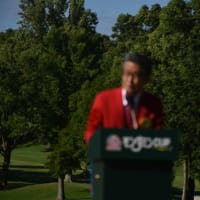
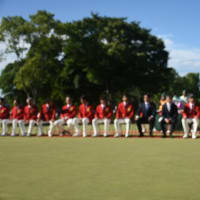
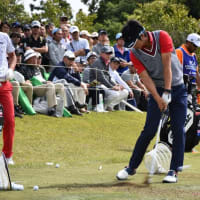
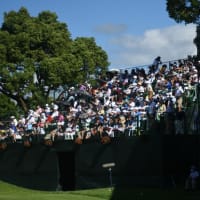
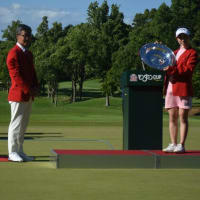

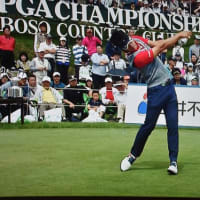
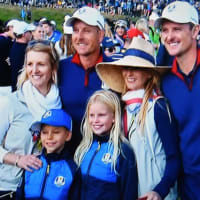






※コメント投稿者のブログIDはブログ作成者のみに通知されます